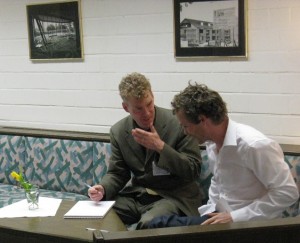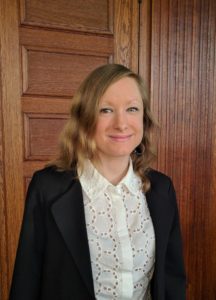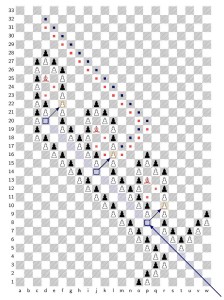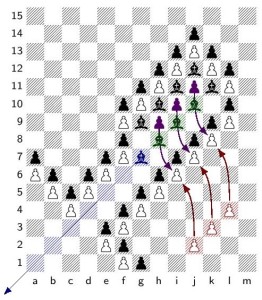A four-lecture tutorial on the topic of Boolean ultrapowers at the Young Set Theory Workshop at the Hausdorff Center for Mathematics in Königswinter near Bonn, Germany, March 21-25, 2011.
Boolean ultrapowers generalize the classical ultrapower construction on a power-set algebra to the context of an ultrafilter on an arbitrary complete Boolean algebra. Closely related to forcing and particularly to the use of Boolean-valued models in forcing, Boolean ultrapowers were introduced by Vop�enka in order to carry out forcing as an internal ZFC construction, rather than as a meta-theoretic argument as in Cohen’s approach. An emerging interest in Boolean ultrapowers has arisen from a focus on the well-founded Boolean ultrapowers as large cardinal embeddings.
Historically, researchers have come to the Boolean ultrapower concept from two directions, from set theory and from model theory. Exemplifying the set-theoretic perspective, Bell’s classic (1985) exposition emphasizes the Boolean-valued model and its quotients , rather than the Boolean ultrapower itself, which is not considered there. Mansfield (1970), in contrast, gives a purely algebraic, forcing-free account of the Boolean ultrapower, emphasizing its potential as a model-theoretic technique, while lacking the accompanying generic objects.
 The unifying view I will explore in this tutorial is that the well-founded Boolean ultrapowers reveal the two central concerns of set-theoretic research–forcing and large cardinals–to be two aspects of a single underlying construction, the Boolean ultrapower, whose consequent close connections might be more fruitfully explored. I will provide a thorough introduction to the Boolean ultrapower construction, while assuming only an elementary graduate student-level familiarity with set theory and the classical ultrapower and forcing techniques.
The unifying view I will explore in this tutorial is that the well-founded Boolean ultrapowers reveal the two central concerns of set-theoretic research–forcing and large cardinals–to be two aspects of a single underlying construction, the Boolean ultrapower, whose consequent close connections might be more fruitfully explored. I will provide a thorough introduction to the Boolean ultrapower construction, while assuming only an elementary graduate student-level familiarity with set theory and the classical ultrapower and forcing techniques.
Article | Abstract | Lecture Notes
 Abstract. I shall give an elementary account of the universal algorithm, due to Woodin, showing how the capacity for self-reference in arithmetic gives rise to a Turing machine program
Abstract. I shall give an elementary account of the universal algorithm, due to Woodin, showing how the capacity for self-reference in arithmetic gives rise to a Turing machine program 







